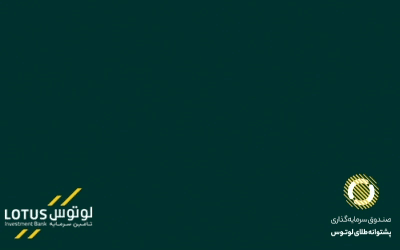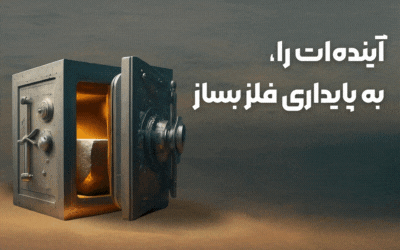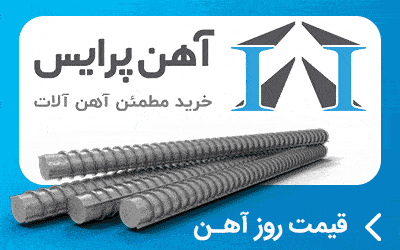Exporting technological products as well as technical and engineering services is one of the most important pillars of economic development. Considering the self sufficiency of Iran to develop and implement many projects and the capability of Iranian engineers, exporting technical and engineering services can act as a pillar for boosting production-based and oil-free economy, as it is practiced in many of the developed nations.
Would you please brief us about activities of Omrab Engineering Company in other countries? When did the company start activities overseas?
Omrab Engineering Company has implemented over ۱۳۰ small and large projects inside and outside the country so far. For the time being, considering the country's special economic situation, particularly in the technical and engineering fields, we have focused activities on carrying out projects overseas.
One of the first projects of Omrab in other countries was the construction of a water treatment plant in the city of Marv in Turkmenistan in ۱۹۹۷.
Moreover, we are working in Sudan since the past eight years and have completed and commissioned two projects there for establishing a water treatment plant and a water transmission line from the Nile River to the Sudanese employer. The company has six other water supply projects in hand in the African country. The necessary budget for implementing the projects has been secured in participation with Omrab GC, the Export Development Bank (EDB) of Iran, and the Sudanese client.
What about projects inside the country?
Generally Omrab's structure is oriented the experience sectors as follow:
• Energy Sector (oil and gas)
• Water and environment Sector
• Infrastructure Sector
We have carried out numerous projects across the country as well, some of which were developed and implemented under harsh environment and climate conditions. In the specialized field of water and environment, it can be referred to the projects for supplying and transferring potable water and constructing water supply plants in large cities. In the field of energy sector, it can be referred to transmission lines, oil and gas storage tanks & pumping stations, as well as utilities in power plants, refineries, and petrochemical complex, and in the field of infrastructure, it can be referred to water supply tunnels, heavy structure civil works.
At present, the third phase of the utility project of Abadan Refinery development plan are complete by ۹۵ percent and are being completed very soon. The water treatment plant number ۶ of Tehran, which will be the largest of its kind in the city and will be set up in north of Pounak neighborhood, is among the other projects. The plant will have the capacity to treat ۱۵ cubic meters of water per second. The project includes water supply tunnel to the length of ۳۰ kilometers, which will carry water from Karaj dam to north of Tehran. It is hoped that the first phase of the treatment plant would come on stream in the next year.
Another treatment plant, dubbed "the seventh treatment plant of Tehran", is being designed, developed, and built by Omrab GC as EPC contract. The plant will be start up in the eastern part of Tehran. The raw water will be supplied from Mamlou dam and its output will be ۲.۵ cubic meters per second. It is hoped that the treatment plant would come on stream next year.
A couple of other projects have also been implemented, for instance, supplying water to Mashhad from Dousti Dam, supplying water to Semnan from Rouzieh Dam, supplying water to Yazd from Zayandeh Roud River, supplying water to Bandar Abbas. Other similar projects have been implemented in the cities of Qouchan, Sirjan, and the Persian Gulf border cities. Moreover, wastewater treatment projects have been carried out in Qazvin and Khoy industrial parks. Similar projects are being implemented in the cities of Ahvaz and Mashhad base on latest technology in the world.
Omrab Engineering Company is one of the active companies in north and south of Iraq. Please expound on activities in Iraq.
Five years ago, we embarked on expanding activities in Iraq after carrying out marketing studies, because there were huge potentials for contracting works. Iraqis officials have allocated large financial resources to the expansion of infrastructures and national development. So, we took measures to start projects in Iraq.
More than two years ago, we launched and implemented the first project in Iraq in Haj Omran (Tamarchin) region. The project was related to design and build building gateway departure for border customs, including six detached blocks of building, covering a total of more than ۱۰,۰۰۰ square meters in area, along with landscaping works. We implemented the project with very tough conditions under a freezing temperature of ۱۵ degrees Celsius below zero at Haj Omran highlands.
Implementing the project - from building the foundation till ending the finishing works - over ۹ months, and as the first project, was a demanding task. We completed the lion's share of the works under harsh climate in winter and proved that taking advantage of Iranian experienced companies will lead to the timely implementation of projects.
Then, we award an international tender, as the first Iranian company in the Kurdistan region of Iraq, to carry out a strategic water supply project. The required water is taken from Zab River, is treated, and is finally supplied to Akre city (close to Erbil city), which is a mountainous district. The project's contract was signed a year ago. Its designing processes have been completed, and the project is being implemented now. To date, it has progressed by ۱۵ percent.
Three projects are also underway by Omrab GC in the north of Iraq. The projects include Basra RCC Dam (in participation with Bamrah Company), the Akre project, and another project for designing RCC Ravandouz Dam. The projects are being implemented in cooperation with our Iraqi partner in the north of Iraq. Totally, Omrab GC is currently implementing three projects in the north of Iraq.
The first project, valued at $۸۰ million, is the construction of Basra RCC Dam. The second project, valued at $۷۵ million, is the Akre water supply project, and the third project, valued at $۱۰ million, is the Haj Omran project. We won the fourth tender in Iraq for designing Ravandouz Dam. The project is underway in cooperation with an Iranian reputable consulting engineers company.
The company has also implementing a project in the south of Iraq in Ziqar (Nasseriyah) province. The project includes design, procurement, construction, fabrication and installation, startup, commissioning a municipal wastewater treatment plant and collection network, forward and lifting pump station for the city of Shatrah. The project's contract is valued at $۹۰ million. We faced the problem of gathering information for developing the project, but we managed to gather the required information in cooperation with Iraqi organizations, such municipalities and governorate generals. The project is progressing at a brisk pace, so that it has progressed by ۱۵ percent so far. According to the contract, the project should be completed by the next two years.
Would you please inform us about problems facing projects in Iraq?
One of the problems is that Iraq transfers projects to be implemented in EPC method. Unfortunately, they had no basic data to be handed over to contractors. There is also no definite strategy in this regard. In fact, they are very young in different organizations regarding the development of infrastructures. So, they are required to gain more experience. Of course, we should gain more experience through working with them.
Another problem is the issue of opening LCs by the banking system. As a result, Iranian companies face limitations in securing sufficient liquidity. We urge Iranian government officials to pave the way for contractors to provide sufficient liquidity in order to be able to expand their technical and engineering exports. We are ready to provide them with any guarantee they need in order to get the liquidity to expand the exports.
A very important issue should be noted. In the beginning of the work, Iraqi borders were opened to Iranians and the situation was prepared for the presence of Iranians, both in the field of trade and in the field of contracting work. But, unfortunately weak and disqualified companies and a number of people which did not care Iran's reputation and history, worked there and caused many problems for Iranian contractors, industrialists, and manufacturers as a result of exporting low quality goods and weak performance in contracts.
Due to the participation of large government companies in Iran in contracting projects, presence of other companies in such projects has become very hard. Recently, the pressure of sanctions and the lack of budget in ministries for contracting projects have persuaded large Iranian contractors to enter international markets, including Iraq. There are good potentialities in Central Asian countries, Afghanistan, Africa, and South America, as well, for the presence of Iranian companies, and I refer to it as a welcome opportunity.
How many jobs has the company created so far?
Basically, a number of jobs are created directly and a number of jobs are created indirectly. In Iran, some ۱۵۰۰ persons are working directly in the company's projects. Some ۵۰۰ persons have also become employed in Iraq. If the nominal capacities of the projects are realized, over ۷۰۰۰ to ۱۰۰۰۰ persons will be working in the projects, both directly and indirectly.
If we study the situation in Turkey, we will find out that we have not worked as well as them. This issue may be due to weak infrastructures for exporting technical and engineering services. The government should provide necessary infrastructures for us. In my opinion, the goal has not been realized yet. Exporting services is a team work like all other jobs. All the responsible elements should do their duties well in order to keep the process going on.
In your opinion, what measures should be taken to increase the power of competition of Iranian companies overseas?
The first thing an Iranian contractor requires is that in the target country's consulate general office and embassy, a special section should be, tasked with the issue of trade promotion, and equipped with experienced staff which are linked with organizations and embassies which hold tenders and offer contracting works.
Those persons who are settled in our embassies should enjoy powerful commercial relations with employers of large development projects, because we have very strong contractors in Iran, but they have been weakened because they have not implemented any projects overseas. We should facilitate the visit of officials of target countries to Iran. This is an important issue. Moreover, Iranian contractors are in debt and are grappling with problems, but they are capable in technical and engineering fields.
These contractors have been weakened due to the special conditions of the country, such as rising prices, non-payments, and lack of adjustments proportional to the inflation rate. Such contractors should be supported financially. If ۲۰ percent of the contract value is granted to the contractor in loans, as it has been approved, the support can be realized somehow. Other countries, which want to develop their economic programs, do the same and provide contractors with kinds of support in earnest.
What hurdles are exporters facing to receive export incentives?
In other countries, the market situation is very competitive. Governments offer notable export incentives. But, we are not supported that way. Our resources have been wasted in national projects. If we cannot conduct the works properly under such a hard situation, not only we cannot have a positive effect, but also we will have a negative effect.
Some weakly developed projects have been implemented in the past by disqualified Iranian contractors in other countries. The weak performance of the contractors damaged the reputation of Iranian engineers. This is while there are well-known and accredited Iranian companies, which have been authorized by the Management and Planning Organization. The article ۱۹ of the Management and Planning organization, different ministries, the Central Bank and it related bodies, companies are assessed based on their technical and executive capabilities and then they are provided with the permission to launch projects. Now that the permission is offered, the companies should be supported. They should be offered with loans and conditions should be facilitated for them. How should we secure the necessary budget without any support?
Another notable problem is the issue of bid bonds. We started to offer bid bonds in Iran with two percent of deposit, but the international sanctions made the job hard for us. No one accepts Iranian bank guarantee and its collateral. The next stage is to receive another bid bond in Iraq. It means that we should give the Iranian bank's collateral to an Iraqi bank and receive another bid bond from it. Moreover, we should give ten percent as deposit, as well. In fact, contractors are under tough conditions. Customs problems have intensified the situation.
Fortunately, the problem is being removed gradually. For example, a truckload of cargo should be unloaded at border and another truck should carry its cargo. This job takes time and damages the cargo. I have heard recently that the permission is issued for continuous transportation. But, goods should be transited at the Iraqi border under supervision and transported to the destination as soon as possible.
What are the main problems of the company in the field of construction and contracting works in Iraq?
As I mentioned before, budget deficit is the main problem. Another problem is the provision of bid bonds, which should be resolved in the beginning of the project according to our interests. Messrs. Kazemi Qomi and Shariati made appreciable efforts and achieved some progress in this regard. But, lots of works should still be done.
As I said before, we cannot open LCs, because this issue is not possible for the time being. So, we have to procure goods which are required for our projects in Iraq from the U.S. and Europe. We should buy the goods in cash and the contactor should burden the double pressure of providing the necessary money.
In your opinion, why Turkey has been successful more than Iran in exporting technical and engineering services?
It has been mainly due to the fact that the Iranian administration's point of view has not been economic-based in the past. Meanwhile, Turkey has followed a strategy which was different from that of us. The development strategy in Iran is mainly based on economic development. They have recently spoken about political issues, as well. I hope the administration of President Hassan Rouhani will improve the situation thanks to the developments in the country's political arena.
Is there any legal barrier for the presence of Iranian companies in Iraq?
Fortunately, there is no legal barrier. All the related bodies are interested in the presence of Iranian companies in Iraq. There are two important notes: The first is that Iran is interested in the participation of large Iranian companies in implementing projects in Iraq, and the second is the support from Iranian companies which are interested in presence in the Iraqi market and other countries.
Support will not be meaningful just in words. As I mentioned earlier, support requires a number of tools, such as facilitating the provision of bid bonds and collaterals, as well as the provision of liquidity. We have no technical and engineering problem. We are facing budget deficit problem. The visa issuance process has been much more facilitated. We are hoped to issue long-term six-month and one-year visas for those Iranians who are currently working in Iraq. Of course, we are hoped to lift visa requirements between Iran and Iraq, and issue visas at the entrance gates, just like Turkey and Iraqi Kurdistan.
What do you expect from the new administration?
We expect the government and the administration to improve the situation. The international sanctions have had very negative effects. Infrastructures in the country are being equipped with low-quality Chinese products. The first thing, except for education and experience, an Iranian contractor needs to work in other countries, is cooperation with large foreign companies.
The sooner the sanctions are removed, the more the activity will be facilitated. Presently, we are not able to participate in Iraq's oil projects, which are very expanded, because the Iranian oil sector has been sanctioned. As soon as we want to work on an oil project, the Iraqi side will warn us not to start working, because the lion's share of the Iraq oil facilities are being operated by U.S. and European companies. So, we can just cooperate with a number of specific ministries.
Any final comments?
We are hoped that the administration of President Rouhani will resolve all the extant problems both inside and outside the country, and people reach secured social welfare and stable economic situation. Expanding exports of technical and engineering exports could be one of the ways to reduce dependency on oil revenues.
The required infrastructures have been provided. Iranian companies have implemented many large projects after the victory of the Islamic Revolution in ۱۹۷۹ and even ۱۰-years before the Revolution. Unfortunately, the capacities of Iranian companies are not appreciated overseas. First of all, the sanctions and the problems for issuing visas should be lifted. Then, Iranian contractors should be supported. Hundreds of large contracting companies are in Iran, but they have been crippled both inside and outside the country. The U.S., Norway, and Russia hold huge oil and gas deposits, but their economies are less dependent on oil. They have developed their economies based on technology, production, and export. We should move toward the same direction, as well.



















ارسال نظر